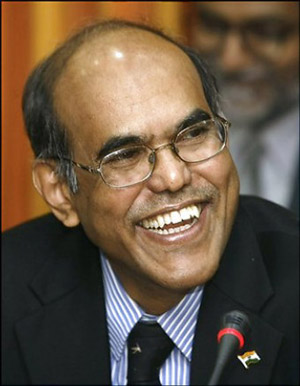Crisis affected reliability of central banks: RBI governor
 The governor of the Reserve Bank of India, D Subbarao has said on Friday that the financial crisis that hit the global economy about two years ago has affected the trustworthiness of the central banks.
The governor of the Reserve Bank of India, D Subbarao has said on Friday that the financial crisis that hit the global economy about two years ago has affected the trustworthiness of the central banks.
During the crisis the central and the governments both had resolved to expansionary fiscal and monetary policies. And now as the governments are planning to begin their withdrawal and the 'tensions between monetary and fiscal policies are showing up again,' he said.
Dr. Subbrao was inaugurating the International Research Conference on 'Challenges for central banks in the context of the crisis when he said "The blame on central banks is wide ranging. There is resentment, if not outrage, against the famed independence of central banks; and there is an outcry for clipping their mandates and tightening the accountability mechanisms."
Many estimates now show that advanced countries will be unable to pull back their stimulus packages due to their aging populations and high social security requirements.
A study from the International Monetary Fund states that even after the governments in advanced countries are able to pull back their advances they will end up with a structural primary deficit of 2 per cent of gross domestic product. The total debt of these countries could rise from 78 per cent of GDP in 2007 to 118 per cent by 2014.
Dr. Subbarao further said that these repeated deficits could become structural fiscal deficits which could undermine the independence of central banks. He also expressed that the responsibilities for maintaining financial stability must be shared between the government, the central bank and other authorities.
He informed that the decision to rescue firms during the crisis was mostly a political decision and is not justified on sound economic principles and government policies to collaborate financially on international platform could limit the independence of the central banks of the countries.
He expressed that the Central banks could make a point for their independence through conducting operations in transparent, more efficient and credible manner.